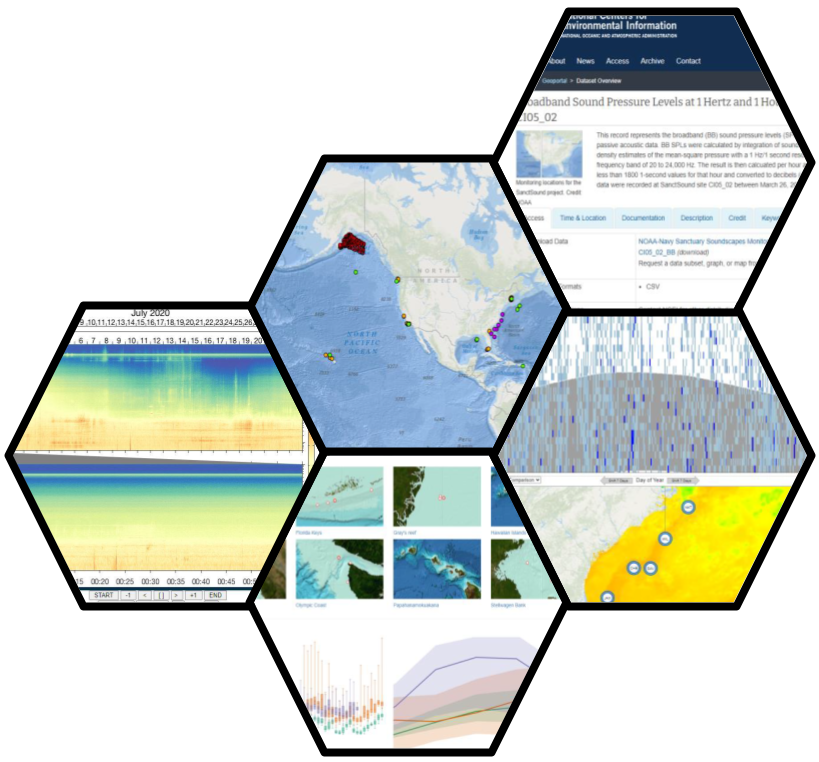
NOAA’s U.S. Integrated Ocean Observing System Office is announcing new three-year cooperative agreements to support its Data Management and Cyberinfrastructure program. The awards, to RPS Group and the University of Colorado Boulder, seek to improve the way IOOS ingests, stores, and disseminates ocean and Great Lakes data. IOOS requested proposals that would evaluate the current state of DMAC and make recommendations to guide progress in the area of DMAC system design.
This funding opportunity is working to evolve IOOS’s DMAC program from its circa-2010 foundations to a fully modern data platform. To this end, IOOS sought proposals that would incorporate new technological innovations into the DMAC program and gather input from a variety of stakeholders on the overall function of DMAC. A modernized DMAC system will allow IOOS to serve the data its customers want at the pace that they need it.
After a competitive, merit-based review process, IOOS is awarding cooperative agreements to RPS Group, Inc and the University of Colorado Boulder.
- RPS Group, Inc received a three year award to help IOOS better integrate cloud computing into the DMAC system design. Their proposal seeks to leverage data interfaces and formats specifically designed for cloud-based processing to create more flexible, easier-to-use methods of accessing IOOS data.RPS will gather requirements from IOOS stakeholders — in particular the 11 IOOS Regional Associations (RAs) with support from the IOOS Association — before developing a roadmap to implement cloud-native capabilities for DMAC. It will create a steering committee to provide input and guidance about the envisioned enhancements which will be delivered throughout the three year award period in an iterative process for evaluation by the community and to help illuminate the possibilities for a redesigned, cloud-native DMAC system.Year 1: $299,362.
- The University of Colorado Boulder received a three-year award to pilot a community focused national cyberinfrastructure capability, the Passive Acoustic Monitoring National Cyberinfrastructure Center, for passive acoustic monitoring data, technology, and best practices. Passive acoustic monitoring is used to describe how sounds in the environment change over time, and potentially space, as well as document the sound sources contributing to the soundscape. While these data are directly applicable to the primary project application, they can also be reused for other projects, applications, and future scientific advancements and connections to other environmental parameters. Therefore, sustained data management and accessibility are critical to obtain the full value of the data.The curation, management, and dissemination of passive acoustic datasets is a big data challenge where progress is just beginning. This project will develop an innovative approach to passive acoustic data management through the development of core cyberinfrastructure components that future passive acoustic monitoring projects can leverage. At the conclusion of this project, sustainment of the Passive Acoustic Monitoring National Cyberinfrastructure Center into the future will be accomplished through technological and knowledge transfer to the IOOS RAs, with the goal of long-term impact and integration into the larger DMAC system.Year 1: $206,691
 Official websites use .gov
A .gov website belongs to an official government organization in the United States.
Official websites use .gov
A .gov website belongs to an official government organization in the United States.
 Secure .gov websites use HTTPS
A lock or https:// means you’ve safely connected to the .gov website. Share sensitive information only on official, secure websites.
Secure .gov websites use HTTPS
A lock or https:// means you’ve safely connected to the .gov website. Share sensitive information only on official, secure websites.
